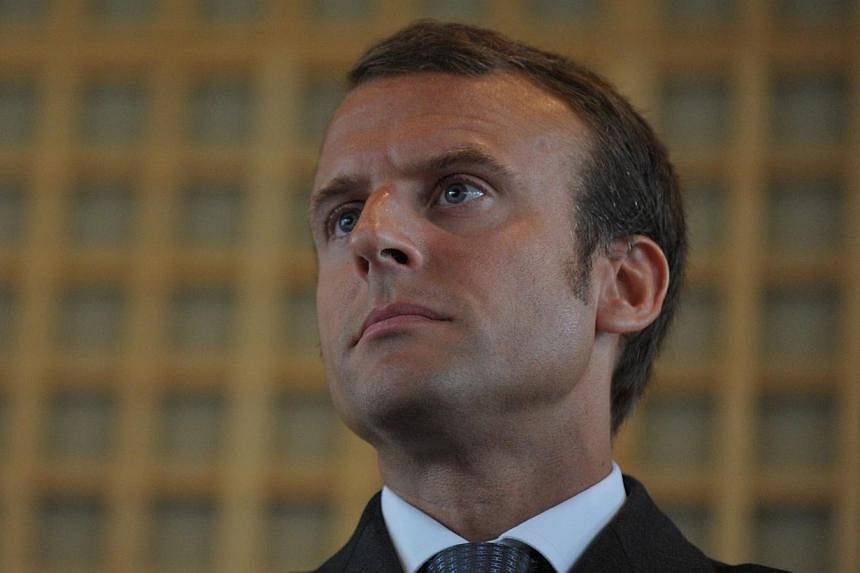PARIS (AFP) - France's new economy minister touched off a political storm on Thursday, only one day into the job, with comments made before he was appointed about the controversial "35-hour" labour law.
Emmanuel Macron, a former Rothschild banker and ex-adviser to President Francois Hollande, told Le Point weekly he was open to allowing companies and sectors of the economy to "depart from" the law limiting French employees to a maximum 35 hours of work per week.
"We could allow companies and sectors... to depart from the rules on working time and pay," Macron told the weekly in an interview published on Thursday but finalised the day before he was appointed.
"This is already possible for companies in difficulty. Why not extend it to all companies, provided there is a broad agreement with the employees?" he added.
The 35-hour law, introduced under the previous Socialist government of former prime minister Lionel Jospin, is a flagship policy of the French left.
Supporters say it creates jobs by limiting the amount of time employees are allowed to work, thereby encouraging companies to take on more staff.
Critics say it is an inflexible law that hampers business and creates a bloated workforce in the country.
Macron, whose appointment was seen as a shift to the right for Hollande's Socialist government, said a departure from the existing law would enable companies to get out of what they see as a "trap".
But he admitted this idea was "difficult to explain... especially when one is on the left".
French authorities scrambled to contain the fall-out from the interview.
The office of Prime Minister Manuel Valls told AFP the government "will respect" the 35-hour legislation.
"The organisation of working time can already be altered within companies via collective agreements," Valls' office said, pointing out the interview was conducted "well before his appointment as economy minister".
Labour Minister Francois Rebsamen said the government did not aim to call into question the 35-hour maximum.
"The working week, I've said it before and I'll say it again, is 35 hours. That is the position of the government," Rebsamen told reporters.
But unions jumped on the comments of the 36-year-old former banker, who was a shock appointment to the economy ministry as Hollande seeks to shore up a more pro-business policy.
Laurent Berger, head of the CFDT union, said it was "not a good idea" while the UNSA union dismissed the proposal as "out of the question".
Opposition politicians also leapt on the remarks, with former prime minister Francois Fillon, from the centre-right UMP, saying he would vote "without hesitation" for a change in the 35-hour week.
The business community also rushed to voice support.
Pierre Gattaz, president of the MEDEF employers' association, said: "If a business needs (an employee) to work 40 hours, it has to do it."
He said it was necessary to "adapt" and "simplify" France's labour laws, adding that "if we don't start to re-discuss several things, we risk pushing up unemployment even further."
The debate is seen as one of the "third rails" of French politics. The last time it raised its head was in 2012 when then prime minister Jean-Marc Ayrault said that calling the 35-hour law into question should not be a "taboo subject".
He later retracted.
The fresh debate came the day after figures showed French unemployment hitting a new record high in July, after rising for nine consecutive months.

